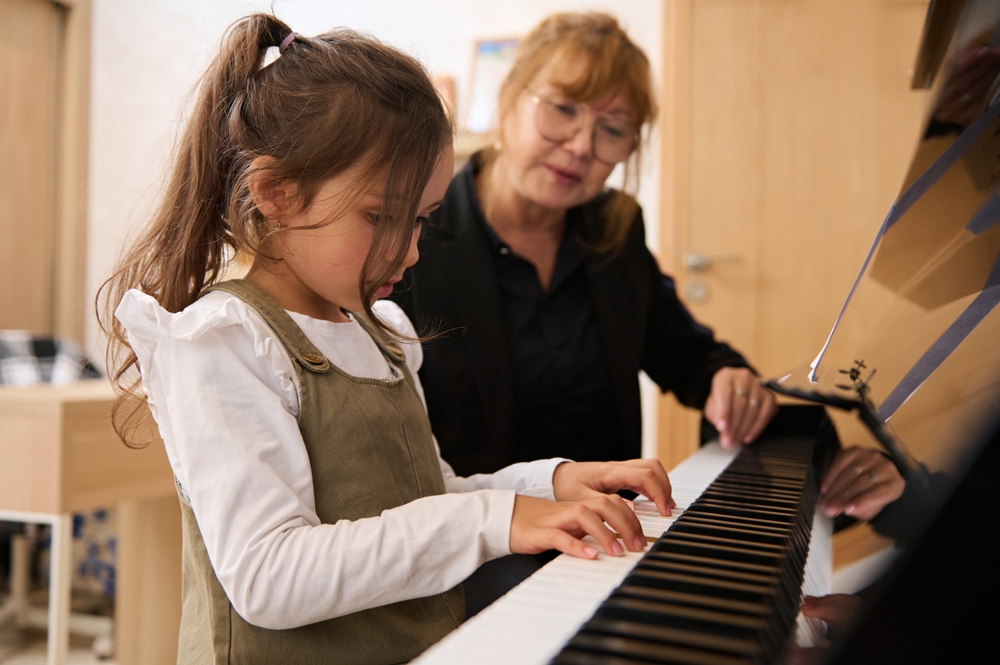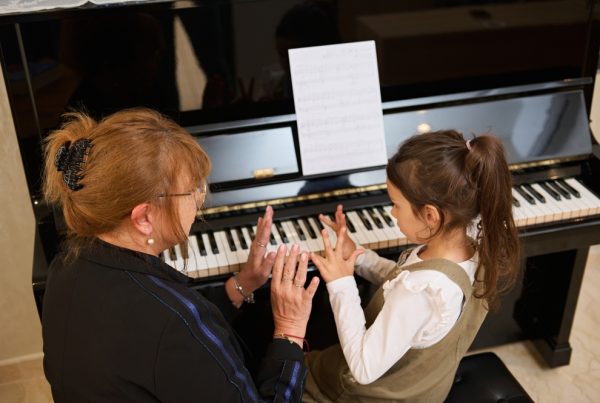Parents frequently search for piano schools near me when they want their children to develop musical, cognitive, and emotional skills without sacrificing family convenience. This long-form guide reviews the benefits of early piano study, explains how the Volz Piano Method works, and shows why in-home instruction with piano teachers that drive to you is reshaping music education in Utah. You will learn how to compare kids piano schools near me, what affordability really means, and how to support effective practice at home so your child can progress confidently from beginner pieces to expressive performance.
Table of Contents
- Why Kids Thrive with Piano Lessons
- Inside the Volz Piano Method
- Understanding “Piano Teachers That Drive to You”
- How to Compare Piano Schools Near Me
- Cost & Affordability Tips
- Parental Involvement & Home Practice Strategies
- Frequently Asked Questions
1. Why Kids Thrive with Piano Lessons
When families look for piano schools near me, they are often motivated by research showing that piano lessons strengthen memory, math reasoning, and language processing. For example, multiple studies link early keyboard study to higher IQ and stronger reading fluency. A review in the National Institutes of Health database notes that music training boosts executive-function skills such as inhibitory control. These benefits extend beyond academics: a MIT-backed study found that kindergarteners in piano classes improved spoken-word discrimination, enhancing language acquisition.
Children also experience lower stress after piano practice. One report found cortisol levels drop more after playing piano than after other creative tasks. Such findings explain why music advocacy groups like the National Association for Music Education (NAfME) stress the whole-child value of arts education. Utah’s own State Board of Education echoes this, emphasizing that fine-arts study supports social and cognitive growth.
Because the piano visually maps musical concepts, it’s ideal for beginners. Unlike wind or string instruments that require complex embouchure or bow control, kids can press a key and hear an accurate pitch instantly. This quick feedback loop fuels motivation, making beginner piano schools near me for kids a top choice among extracurricular activities.
2. Inside the Volz Piano Method
Volz Piano has refined a step-by-step curriculum—the Complete Volz Piano Method—designed specifically for children. Core pillars include:
2.1 Sequential Skill Building
The method introduces rhythm, note reading, technique, and ear training in a carefully layered sequence. Similar to studies showing that younger students thrive when musical skills are taught incrementally, Volz ensures that each new concept builds on mastered foundations.
2.2 Gamified Learning
Kids earn badges and digital rewards through the Volz app, transforming routine drills into engaging challenges. This aligns with findings from surveys of 1,000+ pianists that highlight short bursts of focused, game-like practice as the most sustainable approach.
2.3 Performance & Community
Monthly studio recitals—both virtual and in-person—give students stage experience and a sense of achievement. Music Teachers National Association guidelines recommend regular performance opportunities for children aged 5–18 to build confidence.
By blending educational research with child-friendly technology, Volz offers one of the most sought-after piano schools for children near me in Utah.
3. Understanding “Piano Teachers That Drive to You”
Many parents type in-home piano teachers for kids near me because commuting to lessons can be the biggest barrier to consistency. Volz Piano meets this need by sending qualified instructors directly to your living room:
- Certified Teachers – All instructors hold degrees or equivalent certification in piano pedagogy.
- Background Checks – Safety is paramount; every teacher completes stringent screening.
- Flexible Scheduling – Lessons can occur before school, after sports practice, or on weekends.
- Real-Piano Advantage – Kids learn on their own instrument, mirroring practice conditions.
The benefits are repeatedly confirmed in education journals: students concentrate better in familiar environments, and parental engagement rises when lessons happen at home, as noted in recent parental-involvement studies.
4. How to Compare Piano Schools Near Me
With dozens of kids piano instruction nearby, selecting the right program can feel overwhelming. Use this checklist when evaluating children’s piano schools near me:
4.1 Teaching Credentials
Look for teachers with specialized training in childhood pedagogy. Utah’s Musicians’ Association directory is a reliable reference.
4.2 Curriculum Fit
Make sure the school balances note reading, technique, creativity, and ensemble playing. Ask whether improvisation and composition are included.
4.3 Lesson Environment
Determine if your child thrives better at a studio or in a home-based piano class for children. If your family already owns a keyboard, piano tutors that come to your home for children may save travel time and improve practice habits.
4.4 Progress Measurement
Schools should offer leveled assessments, written reports, and regular recitals.
4.5 Community & Support
Peer ensembles, theory clubs, and practice challenges keep kids engaged long-term.
Parents who need affordable kids piano schools near me can look for scholarship programs or sliding-scale tuition. Utah’s Beverley Sorenson Arts Learning Program directs grants to local arts initiatives, making piano instruction more accessible.
5. Cost & Affordability Tips
Private piano lessons for children near me range from USD 40 to USD 90 per hour in Utah, according to a 2025 market survey of Provo educators. Prices vary based on lesson length, teacher qualifications, and travel distance.
- Bundle Discounts – Some providers lower hourly rates when you prepay for a term.
- Sibling Savings – Volz Piano offers reduced fees for multiple children in the same household.
- Group Mini-Lessons – Pair your child with a friend for duet learning; group sessions often cost 25% less.
- Instrument Rentals – New families can rent digital pianos for as little as USD 25/month before committing.
Because Volz eliminates studio overhead, its tuition often undercuts standalone brick-and-mortar options, making it one of the most affordable kids piano schools near me without compromising teacher quality.
6. Parental Involvement & Home Practice Strategies
6.1 Ideal Practice Duration
Surveys reveal that successful young pianists practice 15–45 minutes a day, five or more days a week, rather than marathon sessions (Pianote poll). Short, structured routines maintain focus and prevent burnout.
6.2 Creating a Practice-Friendly Space
Choose a quiet area of the house, keep sheet music organized, and display a practice calendar. Encourage children to decorate their music corner, reinforcing ownership.
6.3 Role of Parents
Research published in 2025 parental-involvement studies shows that children progress faster when parents sit in on the first five minutes of practice to set goals. Even non-musical parents can listen, applaud effort, and record short recital videos for relatives.
6.4 Motivation & Rewards
Combine intrinsic rewards (learning a favorite song) with extrinsic rewards (stickers, screen time). Gamified apps like the Volz dashboard track streaks, echoing motivational strategies endorsed by Yamaha’s child development experts.
6.5 Managing Performance Anxiety
Encourage low-stakes performances such as playing for grandparents over video chat. A recent pilot study showed that parental emotional support can reduce performance anxiety in students aged 11–17.
7. Frequently Asked Questions
What age can my child start piano lessons?
Most children are ready between ages 5 and 7, once they can recognize letters and sit for 20 minutes. Earlier exposure through rhythm games is beneficial, but formal note reading typically starts in kindergarten.
Do we need an acoustic piano, or is a keyboard enough?
Beginners can thrive on an 88-key weighted digital keyboard. As technique advances, an acoustic instrument offers greater dynamic range, but many families continue successfully on quality digitals.
How do in-home lessons differ from online lessons?
In-home sessions offer real-time tactile correction and immediate parental involvement. Online lessons provide flexibility for travel. Some families alternate between both models.
How long before my child can play full songs?
With daily practice, many students can perform simple melodies within six weeks and full primer-level pieces in three to six months.
Can siblings share one lesson slot?
Yes. Volz Piano’s duet track lets siblings split a 60-minute session, each receiving individual attention while learning collaborative pieces.



